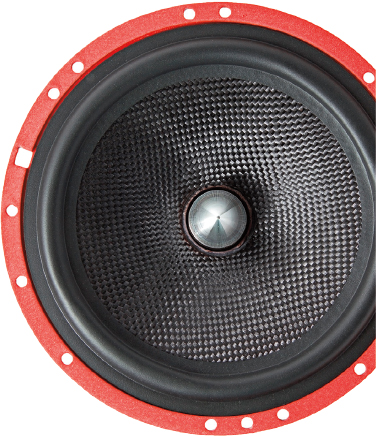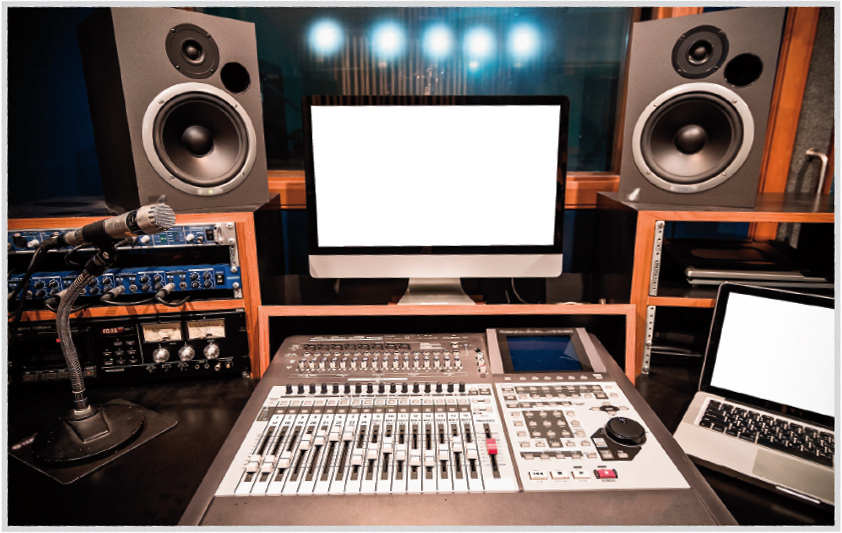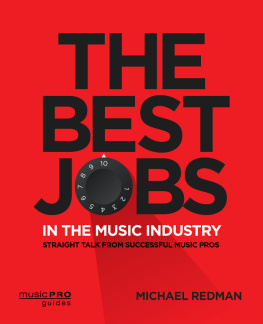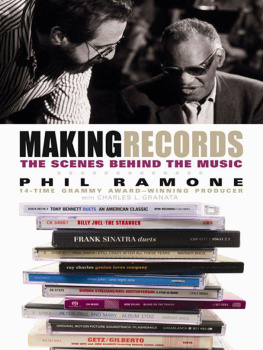Read More
- Anniss, Matt, and Regan, Lisa. Being a DJ. Minneapolis: Lerner Publishing, 2012.
- Duke, Shirley. STEM Jobs in Music. STEM Jobs Youll Love. Vero Beach, Fla: RourkeEducational Media, 2014.
- Mahaney, Ian F. Pop Star. The Best Job Ever. New York: PowerKids Press, 2015.
About the Author
Mary Boone has been a freelance writer for nearly 20 years. She has written for magazinesincluding Entertainment Weekly and People and has authored 30 nonfiction books foryoung readers on everything from boy bands and fashion designers to Midwest cookingand wild ponies. Mary and her family live in Tacoma, Washington, where they enjoycrafts of all types and sizes.
Introduction
On the surface, rock stars have it all. They tour the world and perform to sold-outcrowds. They have fans screaming their names and singing along to their latest hits.They sign autographs, attend red-carpet events, and mingle with other celebrities.But this always-in-the-spotlight lifestyle isnt for everyone. The good news is themusic industry offers a wide range of jobs that are both challenging and rewarding ones that dont come with hassles like dodging the paparazzi.
Whether youre drawn to the idea of working with high-tech equipment in a recordingstudio or dream of wrangling with studio executives to get your client the biggestrecord deal ever signed, theres a job for you in the music industry if yourewilling to work for it. Even if youre working behind the glamour, there is intensecompetition at all levels within the music industry. Dont be discouraged. Simplyfigure out how to get the training and experience needed to set yourself apart. Inmany cases, youll need to start as an intern or in an entry-level job. This willhelp you gain hands-on familiarity with the business. The more you learn, the moreconnections you make, and the harder you work, the better your chances of landingyour dream job.
First things first decide if music is where your passion lies. If it is, startresearching jobs and considering your own strengths. If you know someone in the musicbusiness even a member of a small, local band ask if you can observe and learnwhat he or she does. Watch the crew as they set up microphones and sound boards.Stay around for sound check and help pack up equipment after a show. Every experiencewill help you decide if this is the field for you and which aspect of it interestsyou most.
According to a 2012 survey by LinkedIn, a business-oriented social networking service,30 percent of workers around the world say they are earning a living from their childhooddream job or a related field.
BIG MONEY BEHIND THE GLAMOUR
Sure, stars such as Adele and Justin Bieber are hauling in big paychecks, but plentyof behind-the-scenes players in the music industry are millionaires too. For instance:
- Music producer Rick Rubin cofounded Def Jam Records and is former co-president ofColumbia Records. Hes produced records for artists including the Beastie Boys, KanyeWest, and Jay Z. Rubin has a net worth of $400 million.
- Bernie Taupin is an English lyricist best known for his long-term collaboration withElton John. Taupins net worth is approximately $58 million.
- Clive Calder is a South African record executive and businessman primarily knownfor cofounding the Zomba Group and Jive Records. Calder has a net worth of $2.5 billion.
CHAPTER 1
Audio Engineer
If youre equal parts musician and computer nerd, audio engineering may be the perfectfit for you. Its a field that requires both a trained ear and comfort with complexequipment. Professional audio engineers are responsible for operating and maintainingsound-recording or broadcast equipment. As an audio engineer, you could be in chargeof placing microphones and speakers, setting sound levels, conducting sound checks,and correcting any problems along the way.
Audio engineers may also oversee live mixing of sound for concerts or recording projects.Mixing is the process by which sound from multiple sources is combined. Much of thiswork is done under tight time constraints, making it a high-pressure job.
If you want to be an audio engineer, you also need to have good communication andpeople skills. These will be essential when working with musicians, movie or TV directors,editors, video technicians, and others, all of whom want the best possible sound.
Some audio engineers get to work for large concert tours or other touring performances.If you love to travel, that might be a good fit for you. Youll also need to be flexible.Setting up a show in a different city every few nights means adapting to changingschedules and processes.

So what can you do to get into this field? Successful audio engineers often attendtwo-year training programs before landing their first jobs in the industry. Youlllikely start out as an audio technician running errands, connecting microphones andspeakers, and tracking down problems with audio signals. From there, you might bepromoted to an assistant audio engineer position. Youll continue to do set-up andteardown work but also take on other responsibilities, such as maintaining the tapelibrary. Skilled assistant audio engineers might eventually find work as audio engineers.Theyll continue to take on engineering duties, as well as manage recording projectsor live sessions, assign tasks to assistants, and interact with clients.

A passion for music often drives audio engineers to dedicate their time and energyto this career, but you should still be prepared to work hard. Some audio engineerswork full time for a specific studio, musical artist, or theater, while others workfor themselves and take on freelance projects.

At a Glance
The basics: Audio engineer
Also known as: Sound engineer, recording engineer
Overview: Audio engineers work in recording studios and operate equipment to record,synchronize, mix, or reproduce music, voices, or sound effects.



























 At a Glance
At a Glance